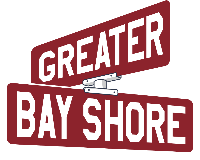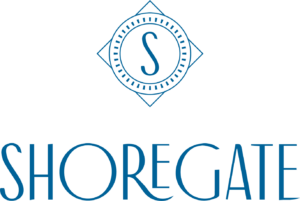
Greater Bay Shore coverage is funded in part by Shoregate, now leasing brand-new premium apartment homes in the heart of Bay Shore. Click here to schedule a tour.
 The Town of Islip collected $562,507 in revenue last year from the Bay Shore parking meter program as of Nov. 1, according to a summary provided to the Chamber of Commerce of Greater Bay Shore in response to a Freedom of Information Law request.
The Town of Islip collected $562,507 in revenue last year from the Bay Shore parking meter program as of Nov. 1, according to a summary provided to the Chamber of Commerce of Greater Bay Shore in response to a Freedom of Information Law request.
The report, which also showed the town collected $68,140 in parking violation fines, was shared at a chamber meeting Tuesday night at the Bay Shore-Brightwaters Public Library.
In 2016, the town collected $351,727 in parking meter revenue and $68,810 in parking violation fines. Meters were introduced to the downtown’s parking lots in May 2017, perhaps the most controversial phase of the meter program. Prior to that, the meters were installed near the ferries, the train station, at the marina, Main Street and elsewhere.
“I was stunned by the amount of revenue,” chamber president Donna deLuca Periconi told the crowd of about 100 people Tuesday night. “I really didn’t think it would be that high.”
The chamber sought the parking meter information because the group and residents questioned how much parking meter money was being collected and how much of that money was specifically benefiting Bay Shore.
While the report provided some answers, it left open more detailed questions that the chamber plans to pursue, said Michael McElwee, 42, a co-owner of Local Burger Co. in Bay Shore and other restaurants. McElwee led the effort to secure the parking revenue data.
According to the report’s estimated costs for all of 2017, revenues from the parking fees were expected to be offset by $440,000 in expenditures, including $220,000 for parking management personnel, $23,000 for snow removal at the Bay Shore train station, $55,000 in credit card fees — which seemed exorbitant to McElwee — and $15,000 for irrigation at the train station.
“How did the snow get removed for 30 years prior to the meters being installed?” McElwee asked.
Islip Councilman John C. Cochrane Jr. said in a phone call Wednesday the town started the parking program to address paying for such costs, and more broadly for Bay Shore’s overall infrastructure expenses — including its docks, marina and parks. He noted that the town paid $3.6 million in debt service for Bay Shore projects alone last year.
Periconi said she invited all of Islip Town’s board members, as well as Thomas Owens, commissioner of the department public works to Tuesday’s meeting. She said Owens responded to say he couldn’t make it, but promised to attend a meeting in the future.
McElwee said he wants Islip Town to emulate Patchogue Village in how it distributes its parking-fee money in the following ways:
• Reinvest Bay Shore parking fees back into the parking program rather than have the money go into the town’s general fund.
• Allow Bay Shore residents free parking at metered lots with stickers.
• Allow a $5 cap on parking fees for a whole night.
Cochrane said he wouldn’t support the first two items mentioned, but that the fee cap is something, “that had been floated around” and noted that adjustments have been made to the program in the past.
“We are constantly reviewing the parking management program,” he said.
Several attendees at the meeting Tuesday said they wanted to know when or if the town planned to roll out parking meters in other hamlets.
“Bay Shore only agreed to [the installation of parking meters] was because it would be in other areas,” said Harry Brown, 69, of Bay Shore. “This is discriminatory taxation,” he added. “They key thing is that the money should stay in Bay Shore.”
Cochrane said the town has to “look at the big picture, and managing the parking program helps with that.”
Top: Chamber member Mike McElwee at Tuesday night’s meeting in Brightwaters. (Credit: Carl Corry)
























